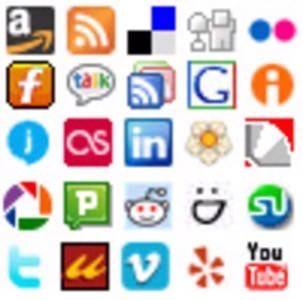It’s time to wrap up the week’s web tech news, reviews and analysis on ReadWriteWeb. On the product side we reviewed a super-hyped new search engine called Cuil, analysed the BT acquisition of web telephony platform Ribbit, looked at why Google bought video startup Omnisio, and investigated why popular Facebook app Scrabulous was shut down. On the trends side we discussed how web apps can work together, checked out Ray Ozzie’s latest vision for Microsoft, gave you an overview of ‘brandstreaming’, and looked at alternatives to Google Knol.

Web Products
This week a new search engine called Cuil launched out of stealth-mode. As some had predicted, it seems Google’s announcement about the size of its search index was a preemptive move to take some momentum away from one of Cuil’s main features: the size of its index with 120 billion pages. As Cuil’s team features quite a number of Google alumni, comparisons with Google’s search are inevitable. In our tests, however, Cuil performed nowhere near as well as Google.

See also: Wow, How Did Cuil Get So Much Publicity on Day 1?! and Yahoo BOSS Should Capitalize On Cuil Damp Squib Launch
Why British Telecom Bought Ribbit, The Web Telephony Platform
Communications company British Telecom (BT) has acquired innovative web telephony platform Ribbit for a reported $105 million. BT has been sniffing around the Bay Area for startups to acquire for some time and this one is a great fit. Not just because both companies are in the voice market but because as a means of folding click-to-call functionality into any web application – Ribbit is fascinating. BT was supposed to be a big mover and shaker in the communications industry of the future, but it hasn’t worked out that way so far. Can Ribbit move the needle for BT? We think it could in a big way.

Maybe to counter some of the bad news around YouTube this week, Google just announced the acquisition of the Y Combinator funded video annotation and mashup company Omnisio. According to Google, the acquisition of Omnisio will allow them to keep pushing the envelope of what is possible with online video. Neither Google nor Omnisio have commented on the price of the acquisition, but it is clear that the Omnisio team is going to join YouTube.

Yahoo Music Does The Right Thing: Issues Refunds to Customers
Last Thursday, we reported that Yahoo Music was going to shut down its store and DRM licensing servers on September 30, which was basically going to leave anybody who ever bought music from the Yahoo Music Store without a license to play their music. Now, however, Yahoo has announced that it will issue a refund to its customers for the full value of their purchases. Yahoo is also looking at making copies of the music its customers bought available to them as MP3s without any DRM.

The Bigger Questions Behind The Scrabulous Shutdown
As of this week, Scrabulous, the wildly popular Facebook Scrabble game, is no more. If you try to login to the app now you’ll get the message “Scrabulous is disabled for U.S. and Canadian users until further notice.” You have the option of entering your email address to receive further information about developments in the matter. While Scrabulous fans are certainly angered over the app’s shutdown, the unanswered question still looms: did Hasbro have to do this?

SEE MORE WEB PRODUCTS COVERAGE IN OUR PRODUCTS CATEGORY
Web Trends
Some Web Apps Work Better Together
How many new websites can you fit in a Volkswagen Beetle? Sometimes it feels like that’s what we’re trying to do these days – but all these new applications and services don’t have to be crammed into our heads and lives as separate things to try out and remember. Many new technologies work best in concert; the functionality of one application can be vastly improved by using it together with another one. Here are some of our favorite examples of apps that work best together, followed by some favorite workflows from friends of ReadWriteWeb. We hope you’ll share your favorite combos in comments, too, so we can all learn some new things.

Peering Into Microsoft’s Cloud
On July 24th, Microsoft held their annual Financial Analyst Meeting (FAM), an event where many of Microsoft’s top executives come together to talk about the company’s progress and achievements. At this year’s meeting, Microsoft Chief Software Architect, Ray Ozzie hinted at Microsoft’s cloud initiatives, a part of their Software + Services (S+S) strategy. While Ozzie did not reveal either codenames or ship dates during his speech, there is still some information we can piece together to help determine what Microsoft’s cloud will look like.

Brandstreaming: What Is It & Who’s Doing It?
If there’s a hot new social media trend happening, you can bet that companies are trying to find a way to use it too. It happened of course with blogging, it happened with Twitter, and it is now happening with FriendFeed and other lifestreaming apps. Indeed RSS vendor Pheedo has coined a neat term for this: brandstreaming. It defines a brandstream as “a consistent flow of content created by a brand”. According to a recent report, 53% of online users are consuming content outside of a publisher’s site – through the use of widgets, RSS readers, social networks and mobile devices.

What Startups Can Learn From Haruki Murakami
Alex Iskold is a big fan of Japanese writer Haruki Murakami.
The genius of Murakami is in his discipline,
focus and determination. He seems him as a virtual Zen master – an embodiment of wisdom,
passion, skills and exceptional will. The elements of his work and life story are inspirational and (here’s where ReadWriteWeb comes in) particularly
applicable when you’re running a startup. Therefore in this post, we take a look at what modern technology startups can
learn from this Japanese literary master.

The Google Knol Threat to Content Businesses – a Wiki Plug-in Might Level The Playing Field
Does Knol (our review) make Google into a “content company”? Mahalo founder Jason Calacanis made a compelling case this week. You can say he is conflicted, because his Mahalo venture has a lot to lose if Knol succeeds. Or you can say that he knows of what he speaks, because he is in the eye of the storm. Jason’s view that Google is the closest we have to an operating system for the web makes sense. His comparison to how Microsoft, an earlier generation operating system vendor, invaded the application market that had belonged to their partners, rings true. This is what dominant tech companies have always done.

SEE MORE WEB TRENDS COVERAGE IN OUR TRENDS CATEGORY
That’s a wrap for another week! Enjoy your weekend everyone.










